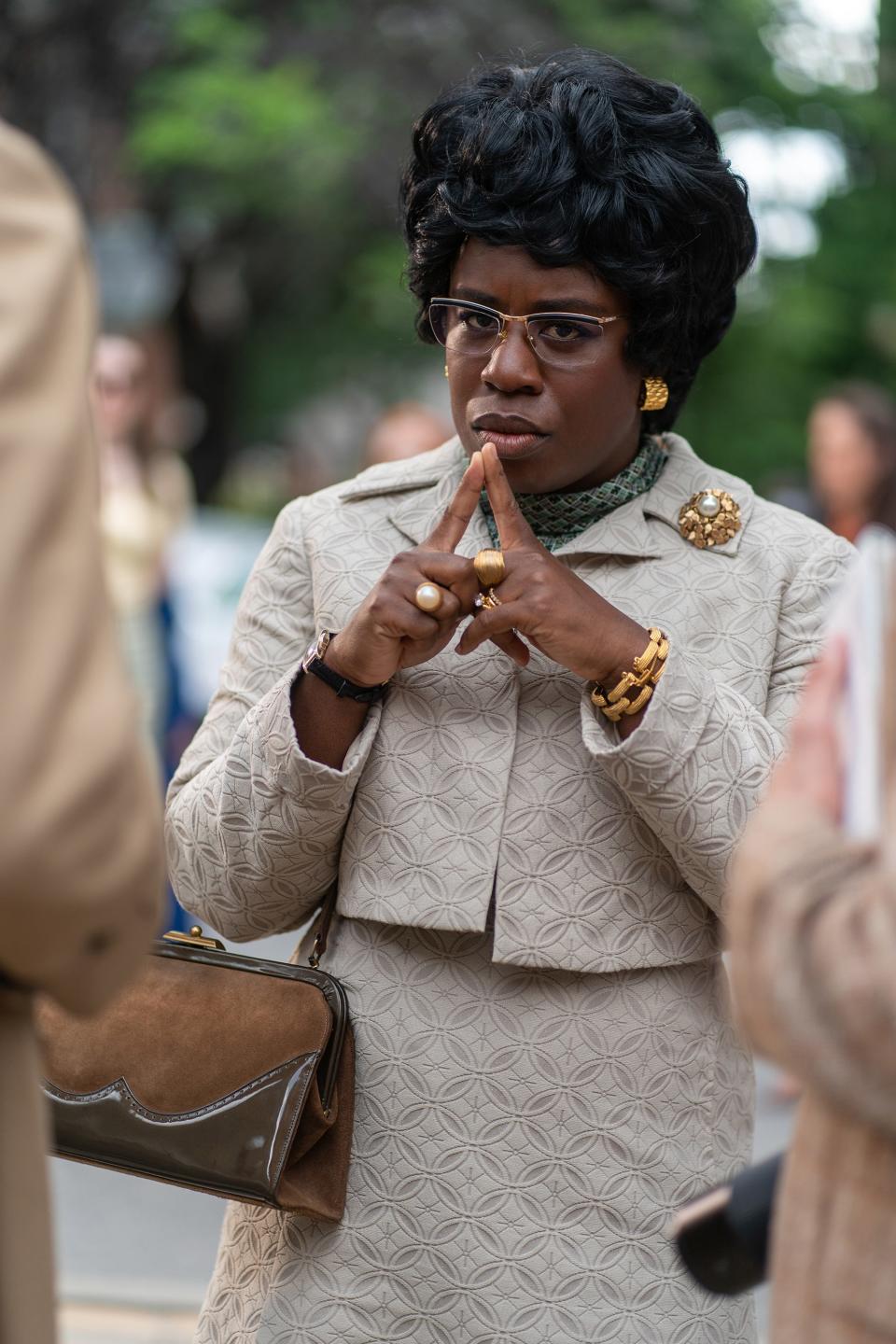Do We Need a Biopic Celebrating America’s Preeminent Anti-Feminist?
Toward the end of the first episode of FX on Hulu’s Mrs. America, Phyllis Schlafly delivers a luncheon speech to the Daughters of the American Revolution. Played by a pastel-skirt-suited Cate Blanchett, Schlafly is the picture of poise as she spews her venom against the women’s libbers and their campaign to push through the Equal Rights Amendment. Her audience, a sea of helmetlike updos, titters over their devil’s food cake.
So far so good, I thought, as I watched this meticulously crafted period drama. I didn’t need a reminder, but knew where I stood. Schlafly: bad, villain. Women’s libbers: good, heroines. (Defeated perhaps, but warriors nonetheless.) And then Schlafly continues: “If you dare to choose the path of full-time mother, then there must be something wrong with you.” Hmm, I thought, sounds an awful lot like “choose your choice” feminism. Was the woman in part responsible for the rise of the radical right also anticipating the mantras of third-wave feminism? “If you push women out into the workforce, women are going to find themselves with two full-time jobs,” Blanchett’s Schlafly continues. “And they’re going to be exhausted and unhappy and feel like they’re not doing either well.” Uh, oh, I thought. This is getting sneaky.
Mrs. America is not exactly a sympathetic portrait of Phyllis Schlafly, but it is at pains to put these speeches into the mouth of its protagonist, to humanize her and paint her as a woman who triumphs over adversity and sees what women are really up against. In the opening scenes, Blanchett participates in a GOP fundraiser by parading in front of the crowd in nothing but a bikini, her formidable intellect playing painful second fiddle to her figure. When she goes to Washington, D.C., thinking she’s been invited to a high-level powwow on matters of national security, she’s asked to take notes; as she leaves the room to get a pen and paper, the conversation doesn’t pause for her. In case you missed the point, when she returns from the trip, exhausted and frustrated, her husband insists that having sex with him—he wants it, she clearly doesn’t—will help her to relax.
It’s a tricky thing to pull off: a TV antiheroine whose virtues persist not in spite of her vices (like Nurse Jackie or Betty Draper or even Skyler White from Breaking Bad), but whose virtues are part and parcel of what makes her so reprehensible. The Schlafly of Mrs. America is organized, motivated, and politically savvy—and she puts all those admirable qualities toward confining the role of women. Take this example of argumentative jiujitsu from a real-life 1973 debate: “I’d like to burn you at the stake,” Betty Friedan told Schlafly, to which the Illinois activist replied, “I’m glad you said that because it just shows the intemperate nature of proponents of ERA.” Does such rhetorical skill make her more or less contemptible?

Yet, with the masterful Blanchett in the lead, it’s very hard not to fall for Schlafly, at least a little. As the first episode draws to a close, Schlafly is gathering the troops, dispatching her newsletter with envelope-knife precision, while Bella Abzug (Margo Martindale) and Gloria Steinem (Rose Byrne) clink Champagne-filled mugs in messy bonhomie, congratulating themselves on a job well done. The ERA has been passed by the House and the Senate. All it has to do is go back to the states for their stamp of approval. In most dramas, when the complacent champions get their comeuppance, it’s a cause for celebration, a reminder that no victory is complete if there’s a lone-wolf challenger with the right kind of tenacity and grit. Here it’s a sad, unnerving comment on the power of one woman—and the legions she motivated—to upend the progress of so many others. “I always did feel that the leaders of the effort to beat ERA had to be women,” the real-life Schlafly once said. How horrible, and how true.
But don’t give up on this show because of its queasy-making premise. This is a show about one woman’s powerful, contradictory convictions. While Schlafly might extol the virtues of domesticity in Mrs. America, it is the women of color she employs to manage her home and the devoted spinster sister-in-law who all but works for her that make her home function effectively while she’s flexing her time-consuming ambitions.

Uzo Aduba as Shirley Chisholm.jpg
It is also, however, about women coming together from a diversity of backgrounds, crossing bipartisan divides that seem in this day and age almost unimaginable. One can understand why such a megawatt cast came together for that prospect: There’s Byrne swanning about in a wig that just about approximates Steinem; Uzo Aduba as the formidable Shirley Chisholm, standing strong in her run for the Democratic Party’s presidential nomination; Sarah Paulson playing Schlafly’s fictional best friend; and Elizabeth Banks as the socially progressive Republican congresswoman Jill Ruckelshaus, who supported of the ERA. And while Schlafly is the center of the show, Mrs. America circles around these women, mixing documentary footage with a swirl of ’70s-style graphics in tangerine and teal, capturing the frenetic, hopeful energy of the era, even when the movement was dealt a series of major and minor blows. This spring, that spirit of resilience seems more important than ever to remember.
Originally Appeared on Vogue

